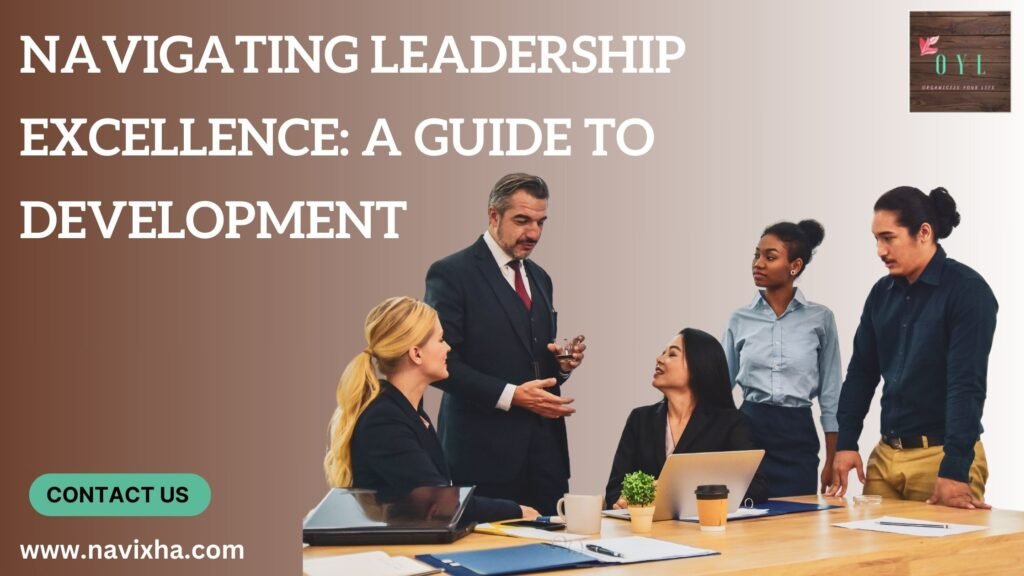Leadership is not a title but rather an act of leading. It is a constant journey of acquiring knowledge and experience. In the current fast-moving business environment, successful organizations rely heavily on effective leadership. Leadership greatness comes from hard work, patience, and commitment. This article highlights important aspects of leadership excellence and provides helpful tips to aspiring leaders and organizations that want to foster leadership excellence.
Significance of Leadership Development
Leadership development has changed significantly since the old top-down approach. Before, it was just training for management skills, but now emotional intelligence, adaptability, and strategic thinking are also emphasized. Additionally, what we know about leadership development these days is that genuine leadership development encompasses influence, impact, and autonomy at all levels. Critical components of developing leadership excellence via leadership coaching services.
Self-awareness: To be a good boss, you must first understand yourself. Leaders should reflect on their abilities, weaknesses, values, and leadership styles before implementing good management practices.
Continuous Learning: Great leaders never stop learning throughout their lives. They seek information from other sources, such as books they read, workshops they attend, or further degrees they acquire, to gain more knowledge and different views.
Emotional Intelligence (EQ): A critical leadership skill is understanding and managing one’s feelings while simultaneously being sensitive to others’ feelings. Leaders with high EQs build stronger relationships, manage disagreements better, and create a conducive work environment.
Communication Skills: A boss should be able to speak to others. Leaders must be good listeners and speakers to convey their ideas vividly. It is also essential for someone to know how to listen actively and give feedback that adds value.
Adaptability: Leaders must learn how to change and keep up with the fast pace in today’s world. They will be successful if they are open-minded about new technology, evolving business models, and shifting market trends. Lastly, flexibility and a growth mindset are key attributes.
Team Building: You can never lead yourself by becoming a leader. On the contrary, it requires leaders to strive to create high-performance teams by fostering trust, working together, and embracing differences within them. A variety of support systems is critical here.
Strategic Thinking: To become a leader, one must be able to see the future and how to reach it. Strategic thinking involves setting goals, making informed decisions, and allocating resources.
Strategies to Cultivate Leadership Excellence
It’s important to note that Leadership Development goes beyond management training to develop a mindset of growth, innovation, and empathy. Leaders who can successfully navigate these complexities for long-term success are needed during an era of unique challenges and opportunities for business owners. Decision-making can be enhanced, worker involvement increased, and a culture of openness to change may be established by the great leader.
Strategy 1: Cultivating Leadership Awareness
Such leaders draw on strategic thinking, emotional intelligence, and growth orientation. Great leaders are those who know how to manage complex situations by balancing short-term needs with future goals and keeping their teams motivated. Furthermore, they understand how important empathy is in leadership. Team relationships can improve engagement and staff loyalty.
Leadership coaching services providers do this through reflective journaling or developmental programs that promote emotional intelligence in strategic thinking. To become aware of different perspectives, units should encourage open discussions and feedback sessions.
Strategy 2: Encourage a Learning Culture
The competitive business world requires one to learn to survive continuously. Leaders must keep up-to-date on industry trends, new technologies, and alternative views. They should create an atmosphere where members feel motivated to learn and improve themselves, encouraging innovation, agility, and competitiveness. Hold regular training sessions as well as workshops. Allow team members to learn across departments to broaden their horizons, too.
Strategy 3: Welcome Novel Leadership Approaches
In the current landscape of business, classical management styles may not necessarily be functional all the time. Such contemporary approaches include transformational and servant leadership, emphasizing empowerment, teamwork, and flexibility. These methods promote inclusivity at work, where ideas can freely blossom as staff feel appreciated. This approach enables leaders to create adaptable teams that successfully deal with unpredictability and attract talented professionals looking for progressive guidance.
Get on the Path of Leadership Excellence Today
A way forward is to organize personality style assessment workshops for your team members. Identifying their present-day style will assist in consideration of other styles that might be more suitable for the organization. OYL Consulting offers leadership coaching services to help leaders achieve leadership excellence. We agree leadership development isn’t a one-size-fits-all kind of thing because it requires hard work, self-discovery and openness to continuous learning. Thus, we aid people and companies by encouraging new ideas, keeping employees interested in their jobs, and achieving long-term growth via our Leadership coaching services. Prioritizing aspects like self-reflection, emotional intellect, and adaptability seems crucial here. Connect us now.

